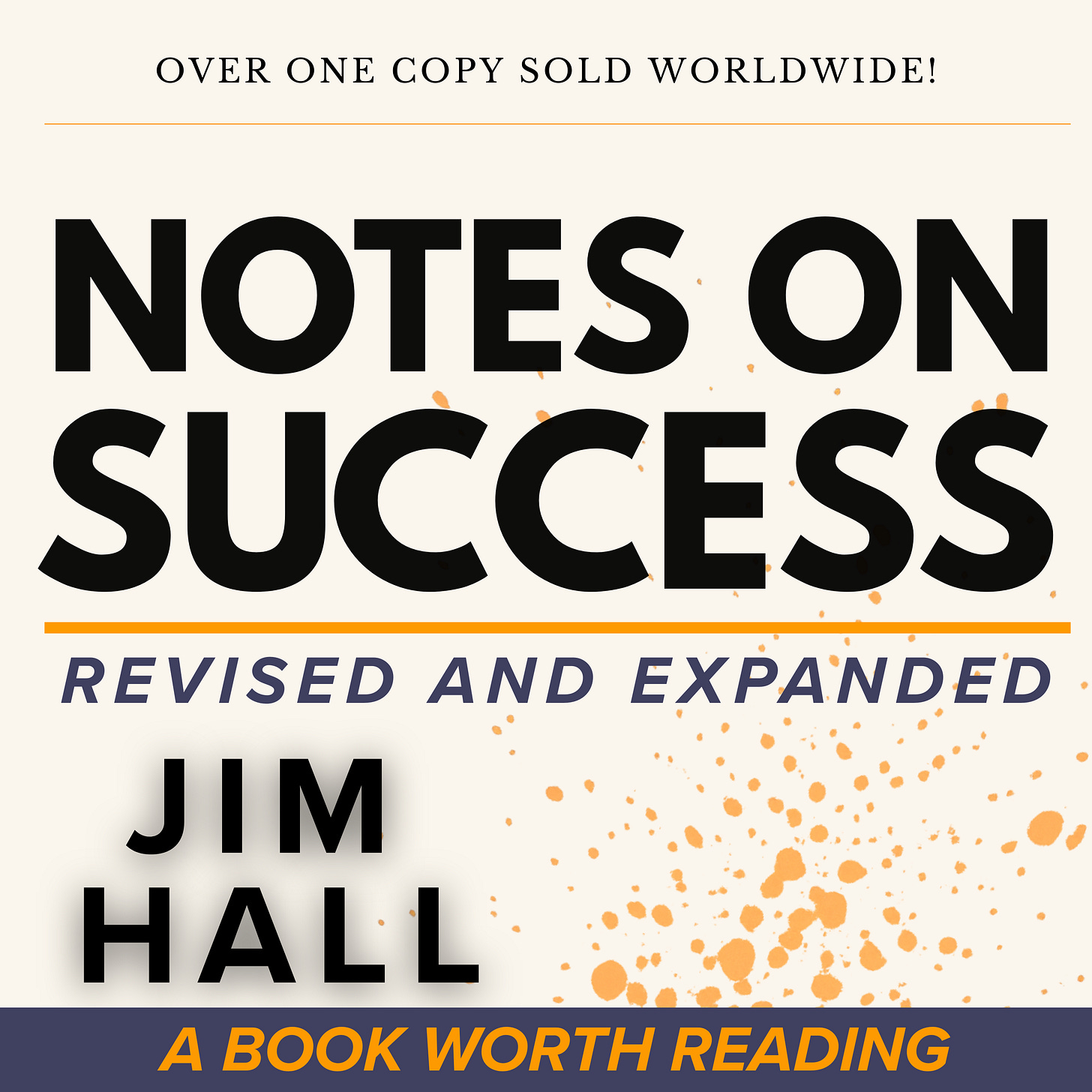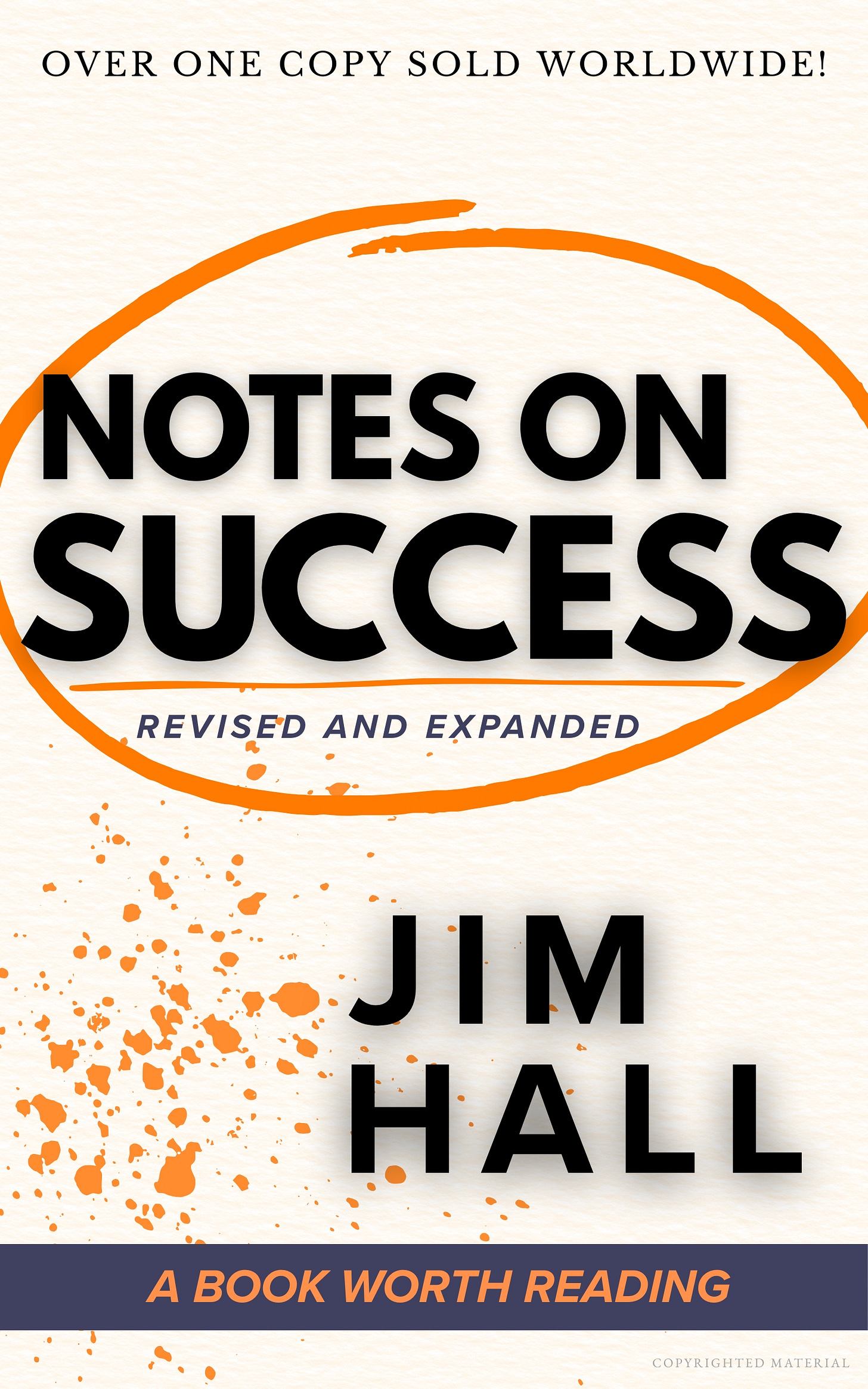Some Sugar Coated Advice Lacking Truth
Chapter 3: Notes On Success
Listen Or Read!
Chapter 3: Some Sugar Coated Advice Lacking Truth
My friend Mason Harris was sixteen years old when he first watched his parents snort lines of cocaine on the kitchen counter.
He had just finished a nineteen mile run after school. Practicing for his upcoming cross country race. He grabbed a water bottle from the refrigerator. Sweaty.
Too often, the advice we hear about living a good life comes wrapped in a layer of comforting platitudes. When we really strip away the niceties, life demands that we confront hard truths.
One of those might mean sacrificing ourselves, for the life of another human being.
What? Care about someone else? You’re kidding!
Stay with me here.
Caring for others requires us to show up authentically, deep inward thinking can reveal both our strengths and our flaws, and hard work, despite our natural resistance, is the backbone of meaningful success.
I’ve lost my mind, I’m sure. Hard work is always the enemy! Right?
Good enough, is good enough.
I hear you.
Our modern culture prizes introspection. We’re encouraged to look inward—to analyze our feelings, our fears, and our dreams. And while introspection can spark creativity and self-growth, it can also trap us.
I’ve got a fun question to help explain the point of this Chapter. Just play along for a second.
Answer this question for yourself…
“Why should I consider a career change into Law Enforcement?”
Think about it for thirty seconds.
Okay.
If you are a cop sorry, and if we instantly listed twelve reasons why we are or happen to be already doing said profession- you probably get where I’m going with this.
But if we are like- ninety nine percent of the rest of us, the first thought that crossed our minds was- why in the world, would anyone want to be a Police Officer?
It doesn’t register to us.
It doesn’t make any sense.
Why would we risk losing our lives, dealing with scum, and getting paid very little to do it for the well being of a community we don’t even like very much?
Being able to answer that question is the point.
While Mason’s parents might have been drug addicts and alcoholics, he chose to pursue things like sports and academic achievement. He could have gotten any high powered, high paying job he wanted. He was accepted into Ivy League schools. Three of them.
The thing is, while we might feel selfish, and uninterested in lives of service, we actually kind of suck at self awareness as a whole.
Psychologists have argued that when we try to explain our own thoughts and behaviors, we often end up confabulating—creating stories that sound plausible rather than accurately reflecting our inner workings.
Stories are good. Just not the fake ones we tell ourselves are real.
We tend to trust our introspection, yet it’s distorted, selective, and easily manipulated by biases. We overlook the unconscious processes that truly drive our behavior and cling instead to narratives that confirm our already existing, not totally real, self-image.
Our inability to be truly self-aware has profound consequences. It stunts personal growth, hampers our ability to form authentic relationships, and even undermines our capacity to lead.
When we cling to distorted self-perceptions, we’re less likely to learn from our mistakes, adapt to new circumstances, or empathize with others.
Value systems are the bedrock of individualism.
We choose what our values are, then live our lives according to them. We use them to define success and failure. We use them to think. Reason. Quit. Try new things.
Most of us don’t even know what our value systems are.
I’m not suggesting we write them down, or anything insane like that.
I’m suggesting we think about what they might be.
If they exist at all.
Much advice in the world is shallow. Unhelpful. Want to be happy? Live a better life? Go make more money. Find a spouse. Have some children.
Understanding perhaps why we would want these things in the first place, is useful. If we can figure out the reasons we search for all of these things, perhaps we can unlock the ability to help others do it first.
We might notice that as we age, we tend to fixate on those that are younger than us. Call it nostalgia, regret, whatever- when we interact with humans younger than us, something happens in our brains.
When we speak to a group of high school aged men and women, or perhaps a new hire at work, a strange degree of enthusiasm results when we feel we have contributed to their lives or success.
There are people who spend their entire careers booking speaking engagements with young people, at universities and corporate gatherings.
This phenomenon isn’t as wildly obvious for say, an eighteen year old. But they can experience it too. Imagine taking care of a younger sibling, or teaching a small child to read.
There is an intense response to helping that is difficult to replicate.
Part of this is selfish, and benefits our psyche. The other part is a mystery that springs from social and psychological after effects that I could bore us to death with research about for quite some time. I’ll spare us and make it quick.
How to use value systems to create massive after effects:
Know what ours are. Know what theirs are. Act on ours. Or all of them, if it makes sense to do so.
I know what you’re thinking, what if our values, and those of other people around us, do not intersect in any way?
Can we help someone that fundamentally differs from us in values?
Yes.
Will we feel good about it? Probably not.
So should we help?
I don’t know. Does it feel right?
Up to you. (Shrugging my shoulders).
A young woman working behind the counter at a gas station in the Midwest of America saved the life of a terrible old man. He was racist. Sexist. He owned the place, and paid her in cash under the table at below the federal minimum wage. She had no other options to feed herself and her family in such a tiny, podunk, town.
One day, someone robbed the place at gunpoint. She emptied the register calmly. The old man walked in, angry, and was shot in the neck.
After the robber left, the young woman called for emergency services. She then plugged his neck wound with her finger. She plugged his artery for over fifteen minutes, saving his life.
The whole town knew what an asshole this guy was. When the young woman was asked why she worked so hard to save him, she simply said
“He might be a terrible person, but I’m not. I know who I am.”
Winners consistently align their actions with core values. Losers compromise these standards in pursuit of short‐term gain.
So where do we go from here.
Start small. Look for everyday opportunities to help.
Practice active listening. People cry out for help in a variety of ways.
Choose your core values.
Think bigger. Build something worth showing the world. Sell something useful. Save someone from hurting themselves or others.
Mason Harris, despite his academic and personal promise, joined the Armed Forces. He saved hundreds of lives. He was personally injured in the process. He made very little money.
He’s a winner.
This is an Excerpt from My Book Notes On Success,
You can purchase it here if you’d like to support us!






